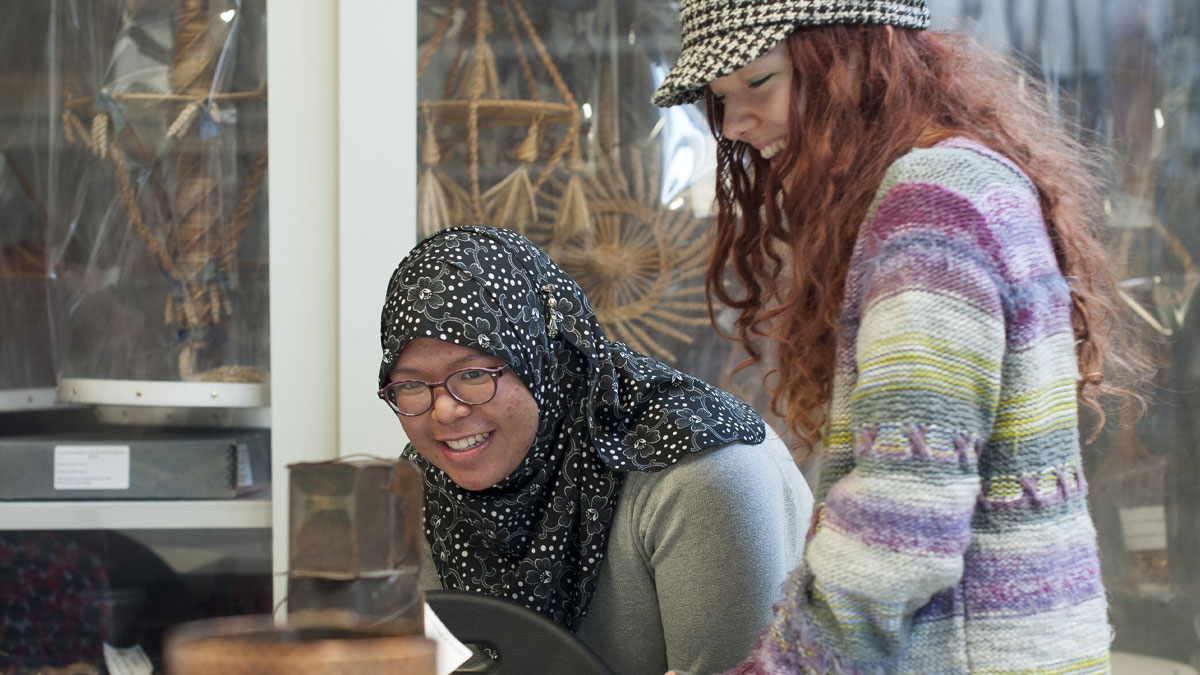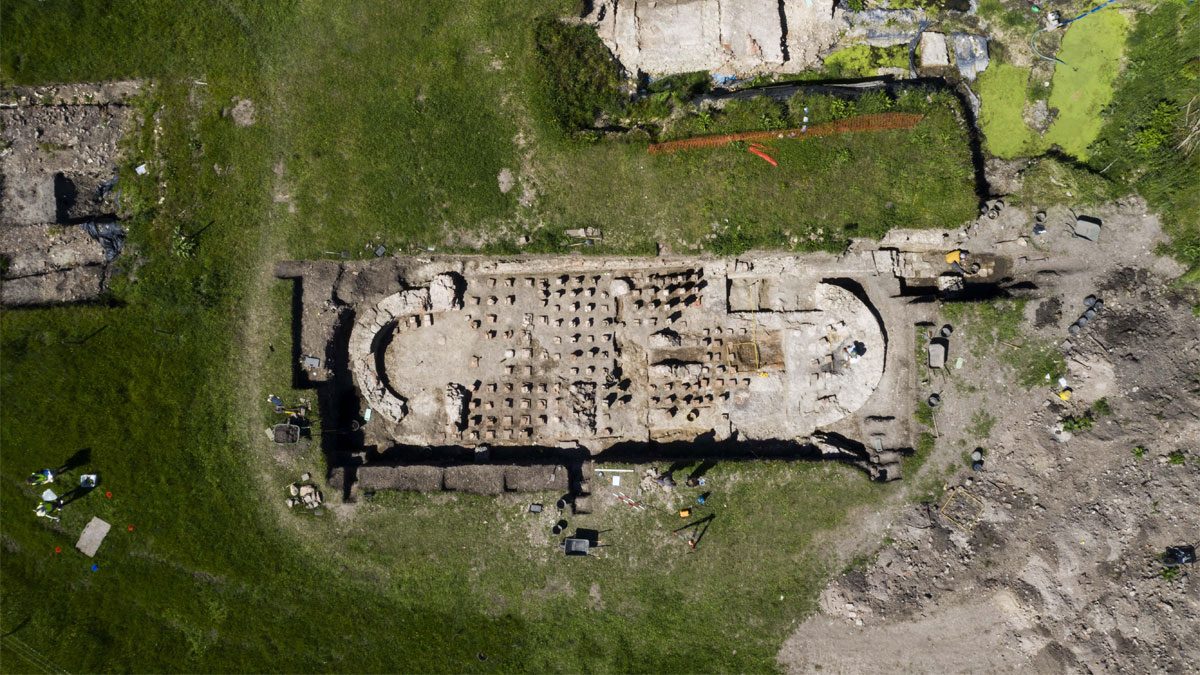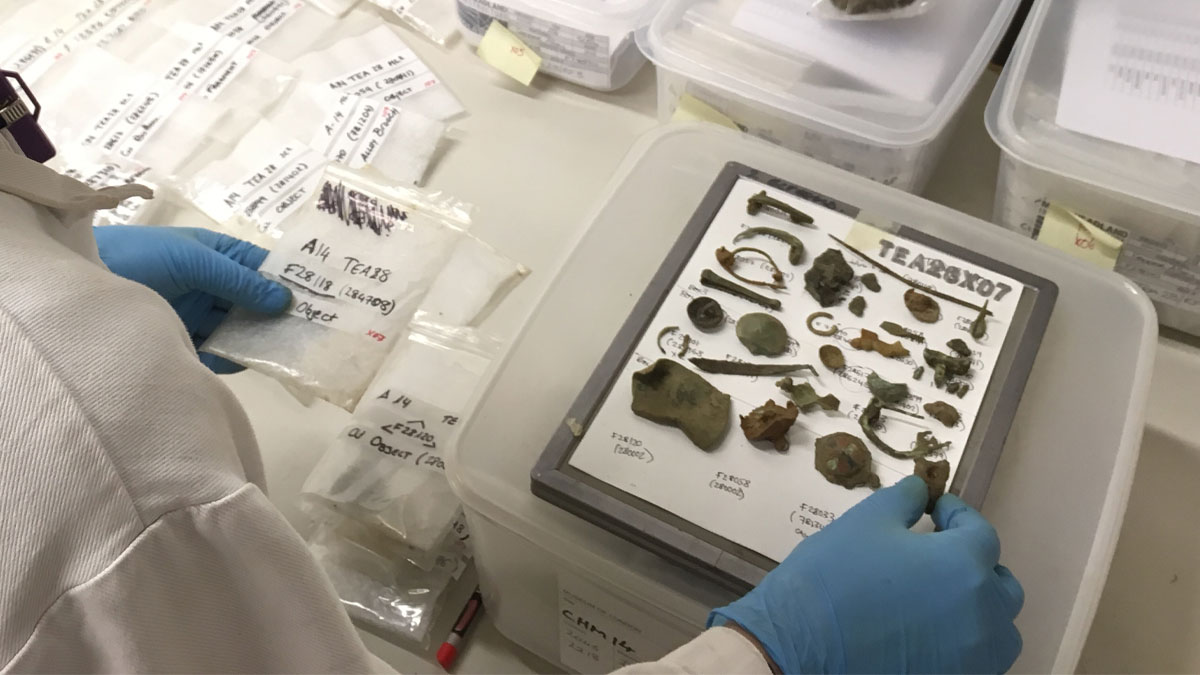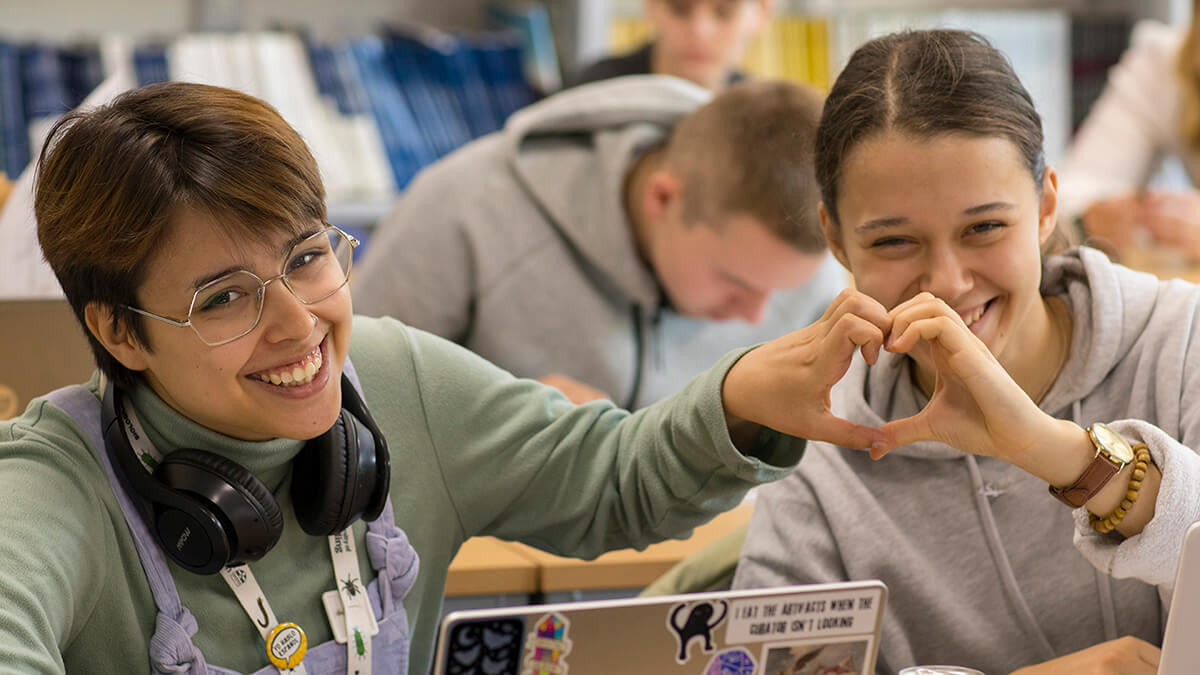Fieldwork is fundamental to archaeology – through it you gain information about the past and develop the practical skills that bring your studies to life.
Your fieldwork may include:
- excavation
- surveying
- GIS (geographic information systems) mapping
- planning
- finds processing.
You'll develop these skills at the end of your first year at the Department's dedicated field school. The site of the field school changes over the years, but the excellent training remains the same. Previously, field schools have taken place at Roman Silchester, medieval Dunyvaig on Islay, and prehistoric sites in the Vale of Pewsey. Work now focuses on Islay and a medieval site at Cookham.
"Not only is the field school a hugely fun few weeks, but you learn so much about practical archaeology including excavation, geophysics, finds and visitors among many other things. It provides you with skills to discuss on your CV that you cannot get anywhere else, and can really help you narrow down what aspects of archaeology are your favourite."
Marcie Weeks, BA Archaeology and History
Read Marcie's story
You will be encouraged to work on other Departmental field projects, both in the UK and abroad, particularly during your second summer vacation. These projects cover a wide range of periods and places.
"Students were extensively involved in my fieldwork in Eastern Europe. Undergraduates and postgraduates joined our international team to excavate castles associated with the Baltic Crusades, but also contributed at all levels of the research programme, from geophysics and landscape surveys to lab work and data analysis. Students have completed dissertations on aspects of the project that will directly contribute to our research, and others have benefited from placements aimed at enhancing their learning experience abroad."
Professor Aleks Pluskowski
Find out more about our field school




